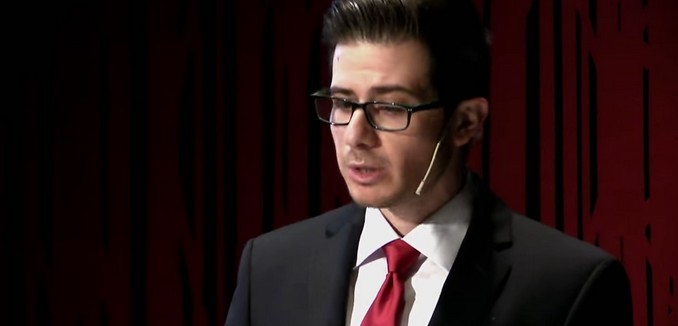George Deek, Israel’s former Deputy Ambassador to Norway, spoke to the Stanford Political Journal, an undergraduate publication of Stanford University, in an interview published Monday, about the anti-Israel boycott movement and the Israeli-Palestinian conflict.
Deek, an Israel-Arab Christian, characterized the anti-Israel boycott movement “as a continuation of the [Arab-Israeli wars] in 1948, 1967, and 1973,” and an effort to “put Israel in a moral crisis.” He was asked to explain “the biggest lies or omissions you see made when people criticize Israel.” His response:
The BDS campaign is not about criticizing Israel. It’s about demonizing and dehumanizing it. For example, you would hear a lot of comparisons between Israel and the Apartheid regime: Israel as a colonialist state; Israel stealing and grabbing land.
Now, there are a lot of politics on the ground that are important to discuss — the issue of borders, the issue of settlements, the issue of refugees in Jerusalem. These are all important topics. Many critics of Israel are interested in finding a solution, not intensifying the problem. They want to find a solution where both Jews and Arabs can live without fear in that region. Meanwhile, the aim of the BDS campaign is to put Israel in a moral crisis. And we have to make sure that people don’t get convinced by a nice slogan and a nice campaign based on a groundless agenda.
People ask me: How do you differentiate between a legitimate criticism of Israel and the kind that is less legitimate, less constructive? I would say the test is the famous “three D” test. The first D is dehumanization; trying to portray Israel as something not human, as something that is sons of apes and pigs, people who are half-demons who are trying to take over the world. The second D is demonization: people who are trying to demonize Israel with claims like, “Israel is controlling world media.” The third D is delegitimization, where people question the right of the Jewish people for self-determination, which is exactly the same right they are asking for the Palestinian people. If you hear people doing any one of those three, you should be very careful when you address that issue.
In addition to the “three D” test, Deek said that when criticizing Israel, a critic should pay attention to who his allies are: “If you are a person who believes in freedom and free speech and a free economy — you shouldn’t associate yourself with people who believe in the exact opposite.”
In September Deek gave what was billed “The Best Speech an Israeli Diplomat Ever Held,” which is embedded below.
The text for the speech is here.
Why is it that the tragedies of the Serbs, the European Muslims, the Polish refugees or the Iraqi Christians are not commemorated?
How come the displacement of the Jews from the Arab world was completely forgotten, while the tragedy of the Palestinians, the Nakba, is still alive in today’s politics?
It seems to me to be so, because the Nakba has been transformed from a humanitarian disaster to a political offensive.
The commemoration of the Nakba is no longer about remembering what happened, but about resenting the mere existence of the state of Israel.
[Photo: medisraelforfred / YouTube ]




